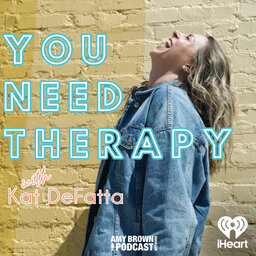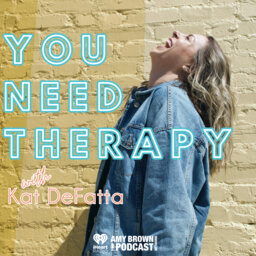Lessons in Love and Closure from JP Saxe (Part 2)
We are back for round 2 with JP Saxe! Kat has Grammy nominated singer/songwriter JP Saxe on the show to talk about relationships from a slightly different perspective for a second week in a row. This week, Kat and JP dive more into masculinity and how to embrace the parts that fit and find freedom from the types chains and expectations that toxic masculinity attempts to lock people in.
Follow JP on Instagram HERE!
Follow Kat on Instagram: @KatVanburen
Follow the podcast Instagram: @YouNeedTherapyPodcast
Click HERE to see the You Need Therapy merch!
Have a question, concern, guest idea, something else? Reach Kat at: Kathryn@youneedtherapyodcast.com
Heard about Three Cords Therapy but don’t know what it is? Click here to visit the website, or check it out on Instagram: @threecordstherapy
Produced by: @HoustonTilley
In 1 playlist(s)
You Need Therapy
Kat Van Buren, who has earned her Masters of Education from Vanderbilt University in Human Developme…Social links
Follow podcast
Recent clips

Couch Talks: Your Guide to Your First Therapy Session
15:27

Lessons in Love and Closure from JP Saxe (Part 1)
34:35

Couch Talks: My Friend’s Having Multiple Affairs—Now What?
10:50
 You Need Therapy
You Need Therapy